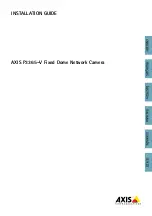
ķ
16.4 High-speed flash mode P-TTL-HSS
Different cameras with focal-plane shutters support the high speed flash mode
P-TTL-HSS (= High-speed synchronisation; see the camera's operating instruc-
tions). This flash mode makes it possible to use a flash unit even with shutter
speeds that are faster than the flash sync speed. This mode is interesting, e.g.
for portrait shots in very bright ambient light, when a large depth of field is to
be limited and a wide aperture selected (e.g. F 2.0)! The flash unit supports
high speed synchronisation in P-TTL (P-TTL HSS) mode.
However, due to physical properties, the guide number and thus also the range
of the flash unit are at times considerably limited in the high-speed flash mode!
Therefore, be sure to note the maximum flash range on the LC display of the
flash unit. The high-speed flash mode is automatically activated if the shutter
speed selected on the camera - manually or automatically - is faster than the
flash sync speed.
Bear in mind that in high-speed flash mode, the guide number of the
flash unit is additionally constrained by the shutter speed: The faster the
shutter speed, the lower the guide number! The settings are made in the
Mode menu (see 5.1). In high-speed flash mode P-TTL-HSS, contrast and
REAR mode cannot be activated, respectively these modes are cancelled
automatically as soon as P-TTL-HSS is activated (see chapters 7.12 and
16.2).
16.5 Triggering control
The camera will prevent the flash from triggering if the available ambient light is
too bright for normal mode exposure. The exposure will be made with the shut-
ter speed shown on the display or in the viewfinder of the camera. With some
cameras, the trigger control is active when the flash-ready indicator on the view
finder goes out. When the camera shutter is released, no flash is fired.
On some cameras, the trigger control only works in fully automatic or program-
me "P" mode (see the camera's operating instructions).
☞
17 Preflash function for red-eye reduction
The red-eye effect occurs when the person being photographed is looking more
or less straight into the camera, the ambient lighting is poor, and the flash unit is
mounted close to the camera. The flash unit then illuminates the interior of the
subject’s eyes through the pupils.
Some camera models have a preflash function for reducing the red-eye effect.
One or more preflashes induce the pupils to contract more, thereby reducing the
red-eye effect.
On some cameras, the preflash function supports only the camera’s inter-
nal flash unit or an illuminator incorporated in the camera body (see the
camer’s operating instructions). The preflash function is set on the camera
(see the camera’s operating instructions). Second curtain synchronisation
(2nd curtain) is not possible when the preflash function is used.
18 Multi-zone AF measuring beam
The multi-zone AF measuring beam
is activated in the flash unit by the
camera when the ambient lighting conditions become inadequate for automatic
focusing. It projects onto the subject a striped pattern that the camera can use to
focus. Depending on the camera’s activated AF sensor, the AF beam has a ran-
ge of approximately 6 m to 9 m (with a standard 1.7/50 mm lens). The maxi-
mum flash range is reached with the camera’s central AF sensor. Parallax error
between lens and AF measuring beam limits the close-up range with the AF
measuring beam to approximately 0.7 m to 1 m.
If the multi-zone AF measuring beam
is to be activated by the camera,
the „single AF (S)“ autofocus mode must be set on the camera and the
flash unit must indicate flash readiness. Some camera models support
only the camera’s internal AF measuring beam. In this case, the multi-
zone AF measuring beam
of the flash unit is not activated (as in the
case of compact cameras; see the camera’s operating instructions).
Low-speed zoom lenses can significantly curtail the range of the AF measuring
beam.
☞
☞
136
709 47 0237.A1 58AF-2 Pen/Sam 27.07.2010 15:17 Uhr Seite 136
Summary of Contents for MECABLITZ 58 AF-2 digital
Page 73: ...73 ĸ 2 Pen Sam 27 07 2010 15 17 Uhr Seite 73 ...
Page 109: ...109 ń 2 Pen Sam 27 07 2010 15 17 Uhr Seite 109 ...
Page 145: ...145 ķ 2 Pen Sam 27 07 2010 15 17 Uhr Seite 145 ...
Page 181: ...181 ƴ 2 Pen Sam 27 07 2010 15 17 Uhr Seite 181 ...
Page 217: ...217 į 2 Pen Sam 27 07 2010 15 18 Uhr Seite 217 ...
Page 218: ... 2 Pen Sam 27 07 2010 15 18 Uhr Seite 218 ...
Page 219: ...219 2 Pen Sam 27 07 2010 15 18 Uhr Seite 219 ...
Page 220: ... 2 Pen Sam 27 07 2010 15 18 Uhr Seite 220 ...
Page 221: ...221 2 Pen Sam 27 07 2010 15 18 Uhr Seite 221 ...
Page 229: ......
















































